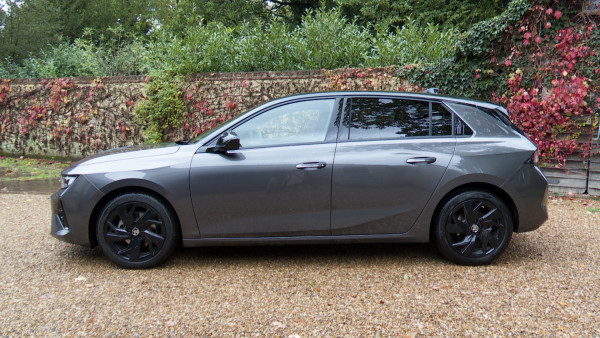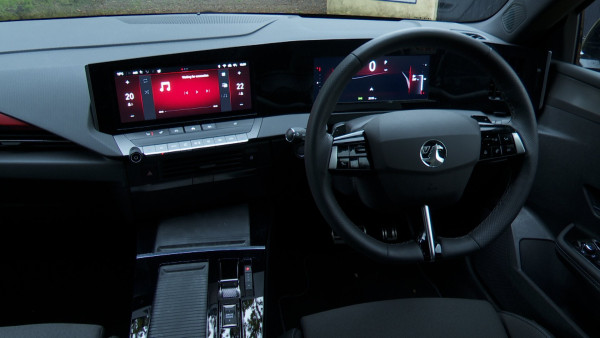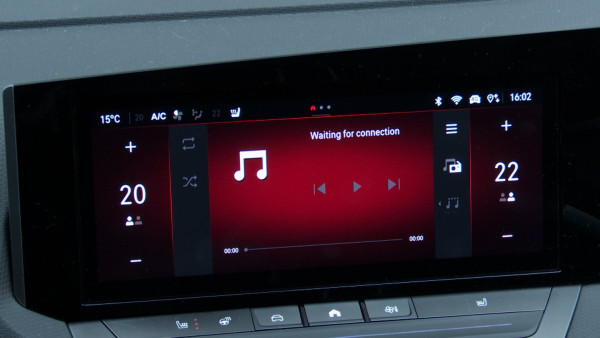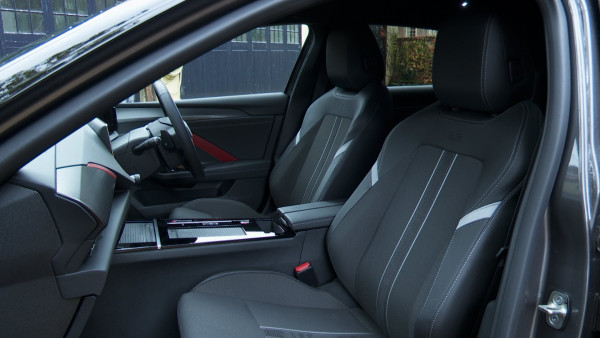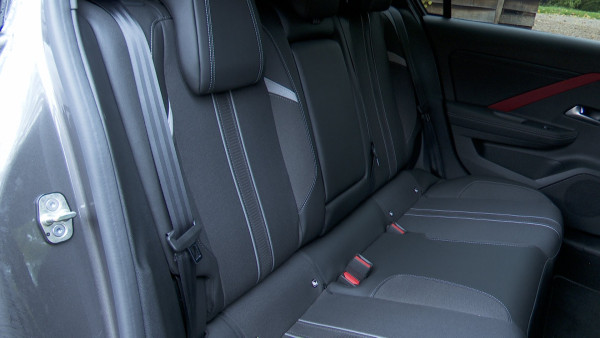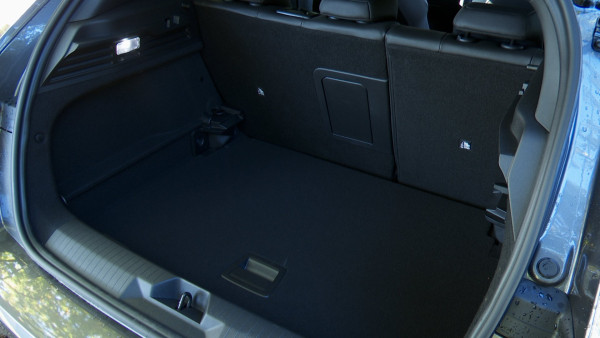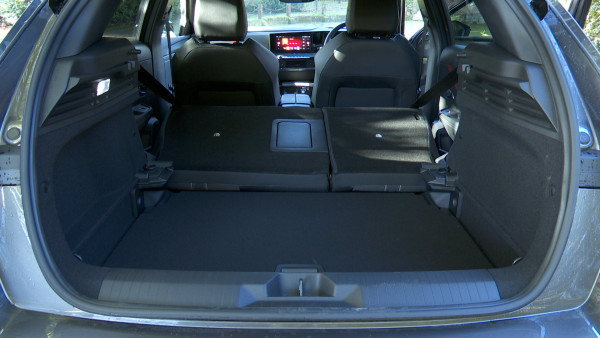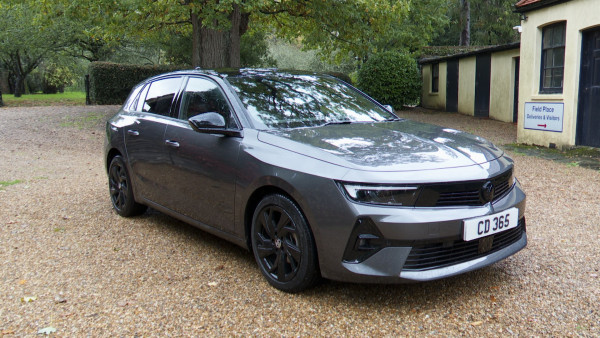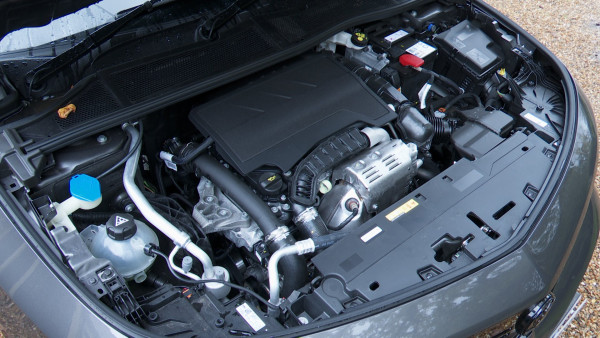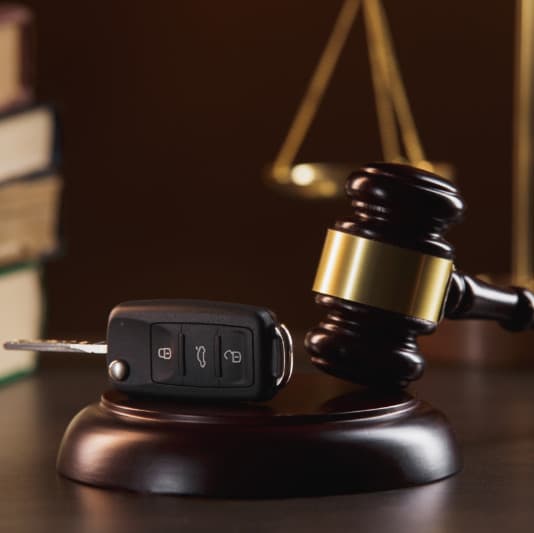Vauxhall's eighth generation Astra is now a cooler, more fashionable family hatch choice. Jonathan Crouch drives it.
Ten Second Review
The Vauxhall Astra. It's long been the staple of the company car park and this eighth generation version aims to combine this model line's traditional no-nonsense appeal with a bit of extra flair, courtesy of French-derived underpinnings which also bring the option of electrification.
Background
For years, Vauxhall has struggled to make its Astra an engaging showroom choice in the family hatchback segment, but perhaps it's time has come. This eighth generation model was the last model in the brand's line-up to move away from the platforms of previous company owner General Motors and adopt the Stellantis Group EMP2 underpinnings and engines used in similarly-sized Peugeots and Citroens. But as you can see from the pictures, it retains very much its own identity. And yes, you'd notice one in the showroom.
Which is a definite step forward from an era where an Astra was a choice you made based on price or efficiency. But very rarely on heart or desire. Yes, underneath, it's basically the same as a Peugeot 308 or a DS 4; but you feel here that Vauxhall is at last reinventing itself as a more interesting brand with cars like this one. Let's take a closer look.
Driving Experience
It's refreshing to find when you set off down the road in this Vauxhall that an Astra feels significantly different to the Peugeot 308 it's almost entirely based upon. We were hoping it might and had quite high expectations for just how good this eighth generation model might be to drive given that its predecessor was severely under-rated in this regard. True, there's not the rewarding depth of handling prowess that you'd get in this class in a Ford Focus or a Mazda3, but we reckon this Astra still qualifies as best of the rest if you like your driving, mating the fluid gait you get with its Peugeot cousin with a slightly sharper feel. That's partly down to a bit more steering feedback; and partly down to fractionally firmer damping, though this Vauxhall rumbles a little over poorer surfaces as a result. It doesn't feel as troubled by them as the old model did though, partly because of the 14% improvement in torsional stiffness this time round.
As for powertrains, well almost all sales will be of the 1.2-litre petrol unit we tried, available with either 110PS or 130PS. Significantly, both are available with the manual gearbox you can't have in a Peugeot 308. That car restricts you to the 8-speed auto transmission also available here, an option with the 130PS petrol Astra. Otherwise, you've to choose between the various levels of electrification that the switch to the EMP2 Stellantis Group platform has made possible here, all of course auto-only.
Your starting point is the Turbo Hybrid e-DCT6 variant, which uses a 48V self-charging Hybrid unit with 136PS and a dual-clutch 6-speed auto gearbox with a little 28hp electric motor built into it. Above that, there are two Plug-in Hybrid options based around a 1.6-litre petrol unit which combines with a 110hp electric motor powered by a 12.4kWh battery that can deliver an EAER-rated EV driving range of up to 42 miles. The standard PHEV system output is 180PS, but Vauxhall also offers a performance-orientated GSe variant which boosts that total to 225PS. Your other option is the full-EV Astra Electric, which has a 154hp motor powered by a 400-volt 54 kWh battery with a driving range of around 250 miles.
Design and Build
Did you ever think an Astra would look like this? Present and correct in both hatch and Sports Tourer estate versions of this more striking looking eighth generation model is the 'Vizor'-style front end lately adopted for the brand's Mokka and Grandland SUVs. It's flanked by sparkling LED headlights, which at the top of the range are upgraded to 'Intellilux' status, which gives each lamp 84 individual LED elements. There are also larger wheel arches housing bigger rims of 16 to 18 inches. Size-wise, at 4,374mm long and 1,860mm wide, this MK8 Astra is fractionally longer than its predecessor, but sits 15mm lower. The Sport Tourer estate version is 268mm longer than the hatch.
It's radically different inside too, thanks to the introduction of Vauxhall's 'Pure Panel' design, which banishes buttons and is based around sophisticated 10-inch centre dash and instrument screens. Avoid base trim and your Astra will have the more sophisticated-looking 'Pure Panel Pro' arrangement, where the screen surrounds are fully-glazed. Either way, the centre monitor incorporates wireless 'Apple CarPlay' and 'Android Auto' smartphone-mirroring and there's a Head-up display fitted at the top of the range. There's no longer a conventional handbrake - just a small switch; and models fitted with an automatic gearbox get a sliding selector in place of the usual stick, which frees up space for extra storage and an additional cup holder. A 13mm increase in wheelbase length has improved space for rear seat passengers. And provides for a larger 422-litre cargo area, which offers an adjustable height base. The alternative Sports Tourer estate version offers 597-litres of space. With the Plug-in Hybrid and Electric versions, the respective capacity figures are 352-litres and 516-litres.
Market and Model
The previous seventh generation Astra had the virtue of being priced significantly under the levels of its direct competitors. Vauxhall's current owners have no interest in continuing that policy, so this MK8 model is pitched in the same £27,000-£40,000 price bracket as most of its direct rivals. Obviously, there'll be a slight premium (think around £1,200) on those figures if you want the alternative Sport Tourer estate version, rather than the standard five-door hatch. There are four mainstream trim levels on offer - 'Design', 'Griffin', 'GS' and 'Ultimate', plus with the Plug-in Hybrid 225 model, there are performance-orientated GSe variants. The Plug-in model's price span (in the £38,000-£42,000 bracket) is just below that of the full-electric version (priced in the £35,000-£40,000 bracket).
With all Astra derivatives, you can expect plenty of equipment for the money, with standard features like full-LED headlights, digital instrument dials, a head-up display and standard wireless 'Apple CarPlay' and 'Android Auto' smartphone-mirroring for the centre dash screen. You'll be able to specify your Astra with large wheels - up to 18-inches in diameter - and above base trim, you get a 2-tone paint finish. The front seats, developed in-house, are certified by the AGR (a German organisation who campaign for healthier backs) and claim to be exceedingly comfortable for long journeys. And the brand expects the intelligent 'Intellilux' headlights to be a draw for the top-spec variants. These use state-of-the-art LED pixel lights.
Top 'Ultimate' and 'GSe' variants get the brand's latest 'Intelli-Drive 2.0' technology, which includes Advanced Intelligent Speed Adaptation (which monitors both road signs and weather conditions to adjust the vehicle speed) and Semi Automated Lane Change (which works at speeds between 45mph and 70mph, with the driver able to instruct the vehicle to change lanes). conditions permitting. The 'Intelli-Drive 2.0' package also includes Rear Cross Traffic Alert, which uses radars on the rear bumpers to detect moving objects to the rear sides of the vehicle, such as cars or motorcycles manoeuvring in a car park, alerting the driver when reversing.
Cost of Ownership
The Peugeot and Citroen-derived PureTech engines in use here have already proven to be extremely efficient in other Stellantis Group cars we've tried them in and of course the same is true of this Astra. Think 52.3mpg on the combined cycle and 123g/km of CO2 for both versions of the 1.2 Turbo petrol engine with manual transmission; and 50.4mpg and 125g/km of CO2 for the 1.2-litre Turbo 130PS auto. These figures are helped by this eighth generation Astra's relatively light weight, gained through the use of high-tech materials such as the latest thermoplastics. Low rolling resistance tyres also play their part.
Combustion engines though are soon to be no more in Vauxhalls - the brand will sell only EVs from 2028. For the time being though, the Astra's electrification is varied. Your first option lies with self-charging 48V Hybrid tech, which sees a 136PS version of the usual 1.2-litre petrol engine paired with a 6-speed dual clutch transmission which has a little 28hp electric motor built into it. In this form, the Astra Hybrid can return up to 60.1mpg on the combined cycle and up to 106g/km of CO2.
Otherwise, if you want an Astra with an engine, you'll need the pricier PHEV version. Opt for either of the two available Plug-in Hybrid variants and as we mentioned in our 'Driving Experience' section, up to 42 miles of EAER-rated battery running is claimed, while CO2 is rated at between 23 and 25g/km. From a household plug, both PHEV versions will be replenished in just over seven hours. You'll find 3.7kW single-phase charging supported as standard, which means recharges will take three hours and 50 minutes. A 7.4kW on-board charger is available as an option and plugged into a wallbox, the battery will take one hour and 50 minutes to be topped up. The plug-in hybrid Astra variants offer a thermal pre-conditioning function too.
Of course, you'll need to allow longer to charge if you choose the full-EV version of this car, the Astra Electric. This has a 400-volt battery with 50kWh of usable capacity (54kWh gross) and should go 258 miles between charges. An 11kW on-board charger is offered as standard, which can achieve a full charge from empty in 5hr 45mins using a public charger. Supporting up to 100kW rapid charging, a 10% to 80% charge can be completed in just 30 minutes.
Summary
This eighth generation Astra won't sell in the kinds of numbers we saw with earlier models, but that's to be expected. These are different times. And this is a very different Astra. A better one? We think those owners still loyal to this model line, not tempted away by Crossovers or SUVs, will think so. There's just enough brand identity here to give you reasons to want one. And if the way the UK dealer network has sold the similarly-parented Corsa supermini is any guide, the value proposition might be tempting too if you're shopping around in this segment.
We thought last versions of the previous generation model were very under-rated, but they had become segment also-rans. This car gives reason to add the Astra to your family hatch shopping list once more. And maybe even to put in asterix next to it.
